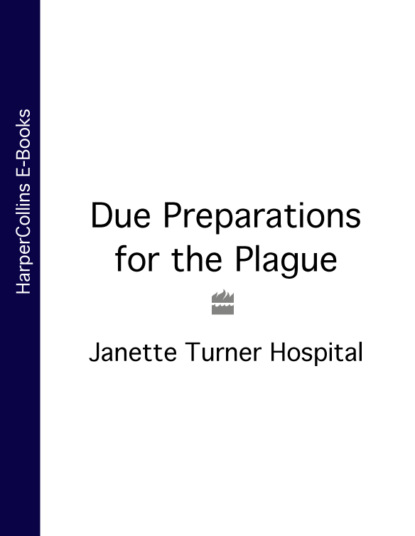По всем вопросам обращайтесь на: info@litportal.ru
(©) 2003-2024.
✖
Due Preparations for the Plague
Автор
Год написания книги
2019
Настройки чтения
Размер шрифта
Высота строк
Поля
“I have no idea.”
“He was tormented by Sirocco,” she says. “He used to cry out in his sleep.”
“My father?”
“He never mentioned Sirocco to you?”
“Doesn’t ring any bells. Mafia, maybe? They gathered intelligence on all sorts.”
“What exactly was Mather’s role?” she wants to know.
“I never exactly knew. Not precisely. Gathering information and misinformation and deciding which was which, I suppose. He was a spook, and then after the hijacking, when he stopped junketing all over the planet, he trained spooks. That’s all I know. Maybe he still did other stuff too, I really don’t know. He used to say someone has to do the dirty work to keep the country safe. I never got much more detail than that.”
“Nor did I,” she says.
“When I was little, he was always flying off to talk to ‘contacts’. He’d never tell us where, but I’d pick up clues, you know. He’d bring back presents and say, Got it in a bazaar in Cairo, or, The wives of the camelmen in Afghanistan make these. Stuff like that.”
“We never traveled anywhere by plane. He wouldn’t let me fly alone either.”
“Planes spooked him after ’87. Plus I think, you know, he was pushed into semi-retirement. I think they were afraid he was losing it. Kept him in Washington.”
“There used to be a car and a driver,” she says. “Every day. And then suddenly, no more official limo, and he had to use his own car. Mostly he shut himself up in his study with his computer and his books.”
“They put him out to pasture,” Lowell says. “Short life span in Intelligence, he always said that.”
“It gnawed at him,” she says. “It wasn’t just the nightmares. Sometimes he would disappear all night. Just driving round the city, I think.”
Lowell stares at her.
“I could tell from the mileage,” she says. “I’d check the odometer. He could put in fifty, sixty miles in a night.”
“I told you he was a stranger to me. I knew the mailman better.”
“There was no one I could ask about it,” she says. “Everything’s classified, or else that was his excuse.”
“Ask me no questions and I’ll tell you no lies,” Lowell says. “I know the routine.”
“He said if I mentioned anything to anyone, our lives were in danger. I never knew whether to believe him or not.”
“I never knew either,” Lowell says. “This calling out in his sleep … did he do that often?”
“Toward the end, every night. Arguing with Sirocco. Shouting at him. Or with Salamander. That name mean anything?”
“Not to me.”
“They stalked him. They terrified him. Especially Sirocco.”
“I guess I suspected he was losing it. But he kept such a tight hold on himself.”
From the pocket of her black suit jacket, she takes the gardenia that Lowell gave her at the graveside and holds it in the palm of her hand. The edges of the petals have turned brown. She reaches for Lowell’s hand and opens it and places the gardenia in it. “And now we have both lost Mather,” she says. “Permanently.”
At that point, he is able to cry; well, not cry, exactly, not cry in any luxurious or extravagant or consolatory or even noticeable way, but he does become aware of functioning tear ducts, of a physical sense of swollenness, of overflow which moves him profoundly. The fact of grief moves him, as of some precious thing long mislaid. He is overcome by this reentry into the experience of emotion per se, and he thinks of it as an atmosphere emanating from Elizabeth. She drives him back to the airport and he wears dark glasses and stares out the window all the way.
“You could stay the night, Lowell,” she offers.
He turns then, but does not remove his dark glasses. They sit for some time, not speaking, on the fifth level of the airport parking garage. When she turns the key in the ignition, as though agreement has been reached, he says, “Thank you, Elizabeth, but I can’t. Rowena says Amy and Jason will panic if I don’t get back tomorrow, and I know she’s right. The kids … you know, I have a bad effect on them, but they need to see me. They need to know I’m okay. I promised I’d take them to the Public Garden tomorrow.”
“You will need to go through your father’s things,” she says, “and decide what you want. Give me a call when you’re ready. You can stay at the house.”
“All right,” he promises. “And anytime you’re in Boston …”
But weeks pass, and they do not make contact with each other again, and then Dr. Reuben calls Lowell.
5. (#ulink_972dbb45-1186-5631-8e91-2e6d9d85eea1)
One month after the funeral, Lowell receives a letter of sorts and certain documents in his father’s handwriting. Dr. Reuben delivers the package, and the circumstances are strange.
“I’ve just flown up from Washington,” Dr. Reuben says. “Your father wanted me to do this personally.”
Lowell tries to put a face to the voice on the telephone. “Do I know you?”
“No, you don’t, and I’m afraid I don’t know Boston. We need to meet somewhere central and very public. Where do you suggest?”
“I don’t understand,” Lowell says later. They are walking side by side in the Public Garden. Lowell marvels at the shine on Dr. Reuben’s black leather shoes. His own sneakers are badly scuffed.
“I was your father’s psychiatrist,” Dr. Reuben explains.
“I see. I didn’t know he—I never thought he had any time for that sort of thing.” Lowell is mesmerized by the flash of black leather alongside his own paint-spattered joggers. He and his father’s psychiatrist are out of step. His sneakers do a quick-step, skip-step, to bring themselves into alignment, but Dr. Reuben stops abruptly—startled or perhaps affronted by the maneuver—and looks back over his shoulder. When they move forward again, they are still not in step.
“Precautions had to be taken,” Dr. Reuben says. He seems to be embarrassed, and is seized by a fit of coughing as though the words are too peppery in his mouth. His eyes water. “At least,” he says, “your father believed so.” He gives way to another short paroxysm of coughing and then laughs in a self-deprecating way. “Your father was very convincing. You know what I’m talking about?”
“I’m not sure,” Lowell says.
“To tell you the truth, I can’t tell if all this is necessary, or if I’ve been swept up into his condition.” Dr. Reuben looks sideways at Lowell, waiting.
“His heart condition? Congestive heart failure, they said—”
“No,” Dr. Reuben says. “I mean paranoia.”
Lowell thinks: This is a trap. My father has arranged for this. He’s paid someone to keep tabs and report on me. He’s keeping postmortem files.
“He believed he was to be murdered,” Dr. Reuben says. “Does that surprise you?”
“What?” Lowell says.
“Murder wasn’t his word for it. Eliminated, he said. I actually tried to get hold of the police report, you know, to see if brake lines were cut, anything like that. But just as he always said, the police reports were classified. Still, I think suicide is equally likely.”
“He had a heart attack at the wheel,” Lowell says. “There was a medical report.”






